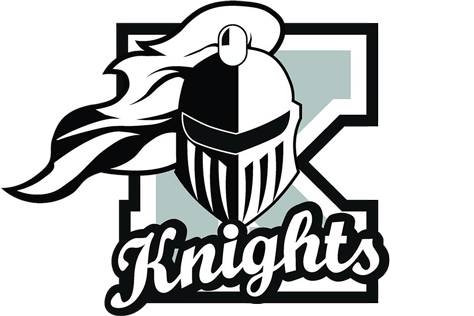About D302

Schools

Parents

Students

Staff

Kaneland provides a full continuum of special education services to meet the needs of students between the ages of 3 and 21.
The responsibilities of the Department of Special Education Services include: •Participate in the MTSS process of problem solving for any student who exhibits significant learning, social, emotional, or behavioral difficulties
•Child Find: Identification and evaluation of students with one or more of 13 categories of disability-Please notify your child's principal if you have developmental concerns
•Special Education Instructional services within the least restrictive environment for eligible students
•Related Services to support student’s progress (Speech, Social Work, Occupational Therapy, Physical Therapy)
•Transition Planning to support attainment of post-secondary educational, vocational, and independent living goals
•Annual Reviews
•Case Study Reevaluations
•Homebound Instructional Services
•Section 504 compliance
Learn more about this page and about resources in our community.
Extended School Year (ESY) ESY is a six week summer program for students that qualify for the program. Eligibility for ESY services is determined by the child’s Individualized Education Program Team. Determination is done on an individual basis. There is no cost to parents and transportation is provided. The location of ESY is held at various locations each year within the Mid-Valley school districts.
Parent Resources The Special Services Department provides resources to websites and organizations as a convenience to its users. We do not guarantee the accuracy or propriety of any information, offered services, products contained in any website linked directly or indirectly to ours.
•ABLE - Illinois Savings for People with Disabilities •All Our Kids-Early Childhood Networks •Assessing College Readiness •Homebound Instruction Info & Medical Certification Form •Illinois Student Records Keeper•Illinois State Board of Education - Special Services Resources & Information •Parental Rights Summary (english)•PUNS -A Guide to Prioritizaion for Urgency of Need for Services•Resumen de derechos de los padres•US Office of Special Eductaion
Speech-Language Services The goal of speech-language services is to provide students with the skills needed to be effective communicators. This includes services to address a variety of needs in the areas of articulation, language, fluency, voice, and social communication skills. Within the Kaneland School District, a student is eligible to receive speech-language services when they exhibit speech-language deficits that adversely affect their educational performance. All speech-language services within the Kaneland School District are delivered by state licensed and nationally certified speech-language pathologists. • Articulation: An articulation disorder involves problems making sounds. Sounds can be substituted, left off, added or changed. These errors may make it hard for people to understand you. • Language: A language disorder includes difficulty understanding others (receptive language), or sharing thoughts, ideas, and feelings completely (expressive language).• Fluency: The most common fluency disorder is stuttering. It is an interruption in the flow of speaking characterized by repetitions (sounds, syllables, words, phrases), sound prolongations, blocks, interjections, and revisions, which may affect the rate and rhythm of speech. • Voice: A voice disorder involves abnormal differences in the pitch, loudness, or quality of the voice. It includes abnormal hoarseness that impacts a student’s ability to effectively communicate, as well as differences in nasal resonance. • Alternative/Augmentative Communication: Alternative and augmentative includes all forms of communication, other than oral speech that are used to express thoughts, needs, wants, and ideas. This includes a range of technologies from picture and symbol communication boards to electronic devices.
Physical Therapy Physical therapy services are provided to eligible students. A continuum of services from consultation to direct intervention are provided based on students’ needs as determined by the physical therapists in conjunction with the IEP team. Physical therapists provide support to students for needs such as mobility/movement, posture/positioning, and safety assessment of school environment.
PsychologyKaneland employs certified school psychologists for the purpose of referral, evaluation, counseling, and expertise in the area of learning. Psychologists play a huge role in the MTSS process by collaborating with school teams, delivering interventions, collecting and interpreting data.
Social Work School Social Workers assess students’ social and emotional functioning, including areas of self-concept, motivation, attitude toward school, peers, and social skills. They serve as consultants to teachers and provide individual or group assistance to students. They often are the liaison between the school and the family. Similarly, they may help other school professionals work with families on matters such as gaining access to community health services. The school social worker often follows up on teacher reports of the suspected abuse or neglect of students. They provide individual assistance to students with emotional or behavioral problems who do not qualify for special education.
Certified Nurses The certified school nurse functions most directly in three areas affecting students: providing health services, health education, and maintaining a safe school environment. The certified school nurse also interacts with and can influence other aspects of the school system such as coordinating school health programs such as mental health, social services, nutritional services, physical education/activity, family and community involvement as well as staff wellness.
Occupational Therapy Occupational therapists work with students who have visual motor, fine motor, and sensory processing deficits. In school, Occupational Therapy involves the therapeutic use of classroom manipulatives, developmental strategies, and self-care tasks and play activities to support function within the academic community. School-based occupational therapy is designed to enhance the students’ abilities to fully access and be successful in the learning environment. Please note there is a distinction between school-based therapy and non-school-based therapy. A student must qualify for special education services through one or more of the 13 different disabilities. categories before occupational therapy can be considered. A script from your child's doctor will not allow your child to receive occupational therapy in the school setting. More details can be found here.
Occupational therapy services are provided to eligible students. A continuum of services from consultation to direct intervention is provided, based on students’ needs as determined by the occupational therapists in conjunction with the IEP team.
Special Services
PDF of Presentation
Community Resources There are dozens of additional services available for our Kaneland Community. Whether you need mental health support, youth advocacy, housing assistance, or more, our Community Resources page is full of useful links for our families, staff, students, and community. It also includes a link to 211 to help you get connected to help when you need it. Click the button below to see our Community Resources page.









 D302
D302